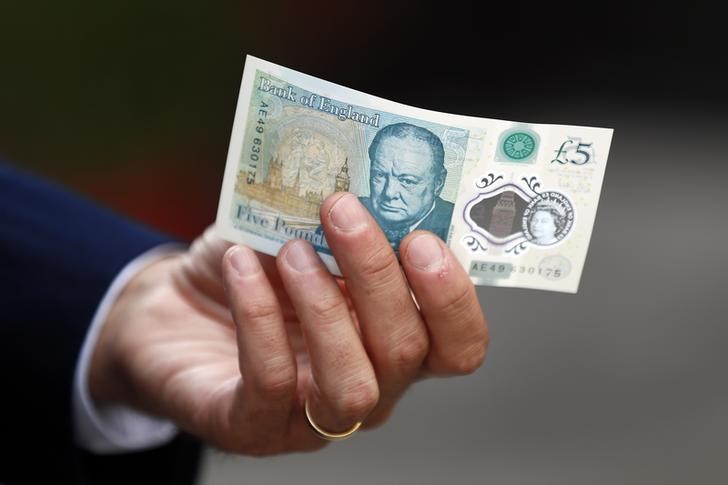Investing.com’s stocks of the week
Yasin Ebrahim
Investing.com – GBP/USD was little unchanged Thursday as investors continue to bet that the Bank of England will be in no rush to rein in easing monetary policy measures as inflation will likely run out of the steam next year.
The Bank of England left its benchmark rate unchanged at 0.1% on Thursday, but cut its weekly bond purchases to £3.4 billion from £4.4 billion in order to meet its unchanged £875 billion year-end target.
The tweak to its weekly bond purchases coincided with a significant rise in its outlook for the economy, which is now estimated to grow 7.25% this year, its fastest pace in more than 70 years.
The backdrop of the growing optimism on the economy, and the tapering of the weekly bond purchases, sparked some talk on whether the central bank would now move quickly to rein in monetary policy to stop the economy from overheating.
But the BoE was quick to stress that the slowing of its weekly bond purchases should not be viewed as a taper given that its £875 billion bond holding target remains intact.
Some economists agree.
"This shouldn't come as a huge surprise – the BoE expects its gilt holdings to reach £875bn by year-end and at the recent £4.4bn/week pace, they’d have reached this target months too early," said James Smith, Developed Markets Economist at ING.
The BOE also hiked up its inflation target, forecasting the consumer prices index to temporarily climb above its 2% target toward the year-end.
Like the Fed, the BoE believes the pace of inflation will run out of steam. This all but puts a lid on the central bank pivoting to a faster pace of the tightening.
"We doubt it [rate hike and tapering] will happen before 2023, partly because we think the inflation story will be less exciting in 2022, once some of the reopening-related price spikes have faded," Smith added.
Beyond monetary policy, meanwhile, politics could set the pound up for a tricky path ahead as traders await the outcome of Thursday's elections in Scotland.
If the Scottish Nationalist Party, or SNP, wins an overall majority in the elections, first minister Nicola Sturgeon has promised to demand a second referendum on independence.
If the SNP fails to secure an overall majority, it could seek a "ruling coalition with pro-independence Green MSPs, rather than engaging with the new breakaway pro-independence Alba party of former SNP dissidents," Daiwa Capital Market said.
"Such a coalition would pressure the UK government to agree to a new referendum on Scottish independence, which opinion polls suggest now would find a majority in favour. In return, the UK government would likely insist that such a new plebiscite would have to wait at least until after the next UK general election, currently scheduled for 2024. A delay strategy, however, might only serve to fuel support for Scottish independence," it added.
